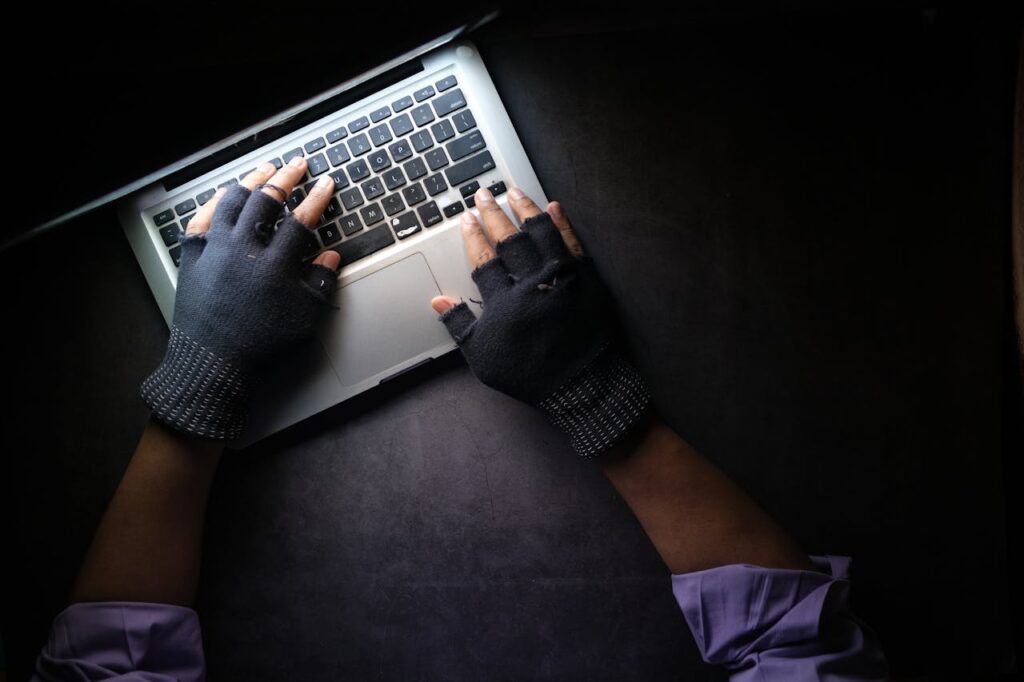In our fast-paced modern world, we’re more linked than ever. Technology is a big part of our lives, from smart home devices to social media to online banking. While this connection makes life easier in many ways, it also makes many risks possible. Cyber dangers are everywhere, ready to take advantage of any weak spot.
Digital security is now essential for everyone who does things online. What does it mean, though? What steps can you take to keep hackers from getting to you and your personal information? This guide will teach you everything you need to know to keep your online life safe. We will look into the world of digital security and find out how to stay safe in this complicated world.
The Importance of Digital Security
Digital security is crucial in an increasingly online world. You could be open to risks whenever you make a deal, and terminals could change how they do things as technology does. They target people and businesses, hoping to steal private data or prevent services from running smoothly. A breach can be terrible if it involves anything from cash information to personal identification information.
Protecting yourself online involves more than keeping your information safe. It also helps you trust yourself and those who access your online profile. Setting security first makes the whole situation safer for everyone.
Users are also given more power when they understand digital security. We can safely use sites while reducing the risks of being online. Going the extra mile not only protects you from threats but also promotes understanding in a time when sharing is so common.
Common Cybersecurity Threats
There are cybersecurity risks all around us, just behind the computer. Phishing scams often use fake emails and links to get people to give out personal information. It’s scary how real these scams can seem.
Another growing threat is ransomware. Once it gets into your system, it locks files and asks for money to unlock them. This is a terrible situation that can hurt both people and companies.
Malware comes in many forms, such as spyware and adware. This lousy software gets onto devices and can take data or stop activities running without permission.
Instead of using technology flaws, social engineering takes advantage of people’s thoughts and feelings. Attackers use people’s emotions to obtain private information, which is a good lesson about the need to be careful about more than just technology.
Networks that aren’t protected pose many risks. While it may seem safe to connect to public Wi-Fi, attackers are just waiting to steal the data sent over these links.
How to Create Strong Passwords and Keep Them Safe
For your online safety, you must ensure your passwords are strong. Start by using a range of letters, numbers, and special characters, both capital and small. To make yourself more substantial, try to get at least twelve lines.
Don’t give out information that is easy to figure out, like pet names or dates. Instead, you could use passphrases of odd words that work together to make a complicated but easy-to-remember password.
It’s just as essential to keep your passwords safe. You should use a trustworthy password manager to keep track of them safely. For this reason, you only need to remember one master password. The manager will take care of the rest.
You should change your passwords every three to six months. If you think your password has been hacked, change it immediately to prevent people from accessing your accounts without your permission.
Two-Factor Authentication: An Extra Layer of Protection
Two-factor authentication (2FA) can make your online accounts much safer. It requires more than just a password; it involves something you only have, like a smartphone.
You’ll receive a proof code via text message or a login app when you enter your password and log in. Hackers will have a much harder time getting in without this extra step.
2FA is a choice on many well-known sites. Turning on this function dramatically reduces the chance of someone getting in without permission.

Set up two-factor authentication (2FA) on all your essential apps, such as email, banking, and social media. Without that second factor, it will be difficult for someone to access your account even if they have your password.
By taking those few extra seconds each time, you’ll be better protected against computer risks that live online. Remember that better defenses make the Internet world a safer place.
Staying Safe Online: Tips for Social Media, Email, and Browsing
The Internet is a great way to stay in touch but it has some drawbacks. To control what others can see, change your privacy settings often and be careful when accepting friend requests from strangers.
When you use email, don’t click on sketchy links or files. Phishing scams happen a lot, and they often look like actual texts. Trust your gut and delete the email if something doesn’t seem right.
It’s also important to browse carefully. For deals, only use websites that start with HTTPS. A good VPN can keep your info safe when using public Wi-Fi.
Be careful when sharing information online, even in safe places. If you share too much, you may be targeted for identity theft or specific scams.
Check your accounts often for strange behavior. Finding problems quickly can keep your digital security life safe and help you avoid more significant issues in the future.
Protecting Your Devices from Malware and Viruses
Malware and viruses can damage your devices, stealing private data and making them less effective. To keep yourself safe, you need to start with the right tools.
It is essential to install security apps that you can trust. These tools look for risks and protect you from real-time harmful downloads. Keep them up to date to ensure they are aware of the newest threats.
Be careful when you receive files or click on links, especially from unknown sources. Phishing efforts often look like real emails or texts. Always check before you talk.
Back up your files often to portable drives or the cloud. This way, you won’t lose important files, even if a bug occurs.
Last but not least, make sure your apps and working systems are always up to date. Security patches are usually released to fix holes that malware could exploit. Staying up to date dramatically lowers risk while improving gadget performance overall.
Educating Yourself on Digital Security Best Practices
To understand Internet protection, you need to stay aware. Because the Internet changes quickly, keeping your information updated is essential. Blogs, groups, and news sites about hacking that share information about the newest threats are good places to start.
Take classes or attend webinars about staying safe online. By learning from professionals, you can gain valuable tips and tricks for protecting yourself.
You should take some online classes to learn the basics of hacking. There are many free sites to learn more about this vital subject.

Joining groups focused on Internet security can also be helpful. Forums allow people to share their problems and answers, making them a safe place to learn together.
Always review your habits, too. Take time to think about what works and what could be better in using technology daily. This proactive method will give you more power to protect yourself from online risks.
Conclusion
We must be careful about digital security because everything is related. As we depend on technology more, knowing how to keep ourselves safe is more important than ever. We can significantly lower the risks by being aware of common online threats and taking proactive steps, such as making strong passwords and turning on two-factor authentication.
To stay safe online, we must also exercise caution when using social networks, email, or web surfing. Malware and viruses constantly threaten our devices, but we can keep them safe by using the right tools and following the proper steps.
Learning about the best ways to protect data is essential for data protection and feeling safe in the digital world. These tips can help us secure our personal information while enjoying everything the Internet offers. You can feel safer online if you take charge of your digital security. Prioritizing Internet protection is more critical than ever.




